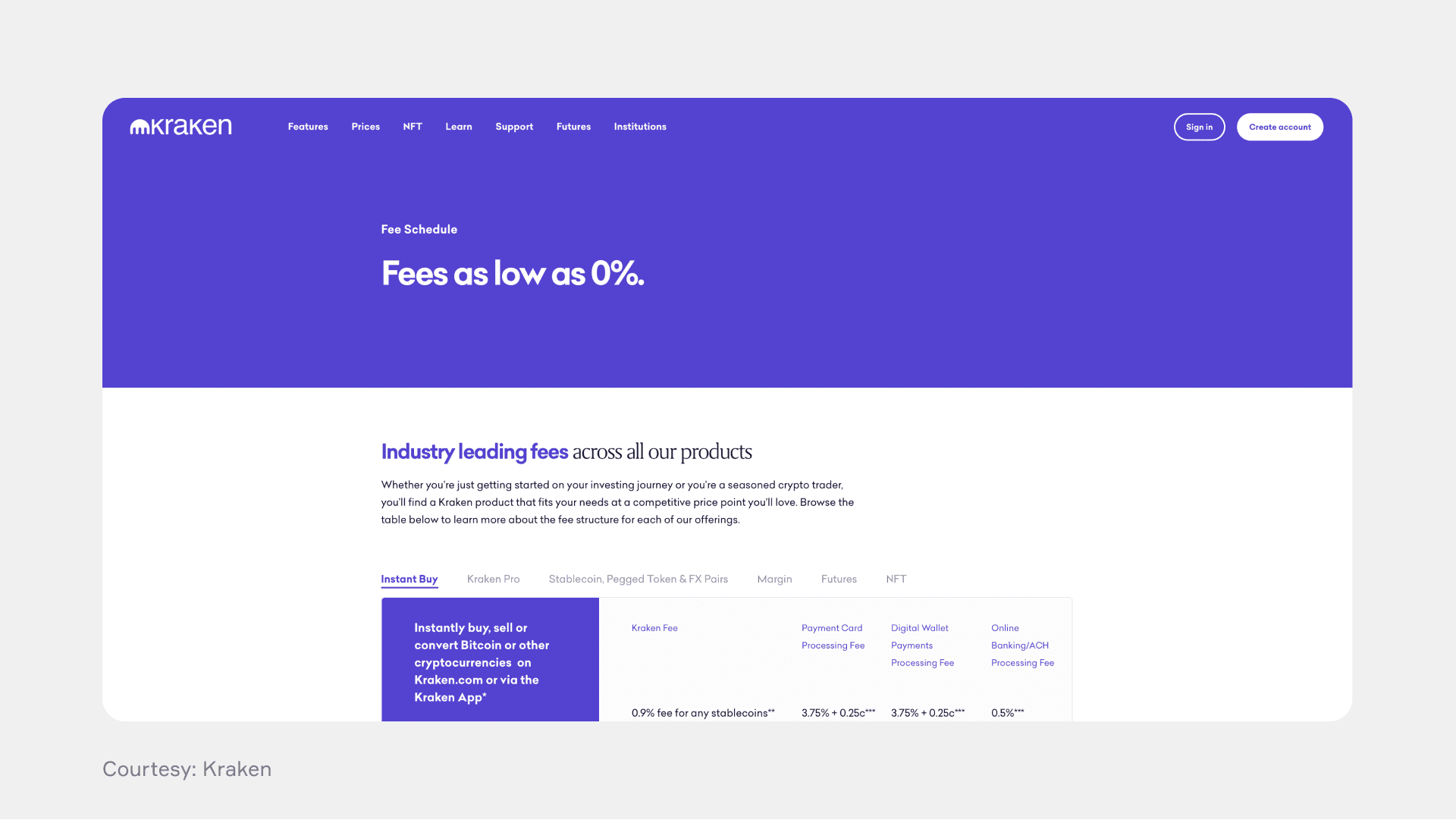A few years ago, the thought of dabbling in crypto was not for the faint of heart. But fortunately, as blockchain technology keeps maturing, so too have cryptocurrency platforms. That means that trading and investing in digital assets is becoming increasingly easier, even for the uninitiated.
As digital assets continue seeing wider adoption, they’ve become an asset class to take note of, especially given the decentralized nature of the underlying blockchain technology, which sets this industry apart from the tightly regulated traditional financial markets.
This has given rise to a number of crypto exchanges that aim to help buyers and sellers trade a wide variety of crypto currencies. Amidst this, a recent report by Crypto.com has put an optimist target on the number of expected crypto users at one billion by the end of 2022, further underscoring the vast potential held by these digital assets.
However, since crypto remains a relatively new market, finding a reliable and trustworthy exchange is more important than ever.
To help you choose the right crypto exchange for you, we’ve put together a short selection guide, with all the nooks and crannies you should be aware of.
What Is a Crypto Exchange?

Simply put, a crypto exchange is an online platform that mediates the exchange of fiat money (government-issued money) for cryptocurrencies or other digital assets, charging a fee for each trade.
In addition, these exchanges (also known as digital currency exchanges or DCEs) also specialize in the trading of a wide variety of crypto assets, enabling the buying, selling and exchanging of cryptocurrencies and tokens.
Since the mining of the first Bitcoin block (Genesis Block) over a decade ago, exchanges have become increasingly sophisticated. After all, the first recorded exchange of cryptocurrency, in this case Bitcoin, for fiat money took place in 2009 and was done through PayPal via the world’s only then Bitcoin exchange site, New Liberty Standard (NLS). The platform offered services to users who could buy and sell Bitcoin in exchange for US dollars using PayPal.
Nowadays, dealing with cryptocurrency has become a full-fledged industry based on hundreds of different coins and different financial strategies,
Cryptocurrency brokerages work much like a stock exchange, with the main difference being that while a company's shares are traded on specific exchanges, cryptocurrencies are traded by several brokerages at the same time. Thus, each brokerage has a "mini market" of its own. The result of this are small variations in a specific cryptocurrency price between brokers, in spite of a global currency price reference.
The role of an exchange is to bring buyers and sellers of cryptocurrencies together, and to provide a secure environment for buying and selling transactions to take place. Before buying these assets, it is important to research these companies, as services and fees vary greatly between them. Trading fees typically range from 0.1% to as high as 5%.
Why Are Crypto Exchanges Important
If you’re looking to buy a cryptocurrency, you can do so directly by trading with a seller in what is known as a peer-to-peer (P2P) exchange. However, there are downsides associated with this strategy as you might not know the source of the coins you’re purchasing and will likely face liquidity, pricing and speed hurdles.
Crypto exchanges on the other hand, can provide heightened security as well ensure that your transactions are easier and faster to make.
How Do Crypto Exchanges Work?

Getting to understand the world of cryptocurrencies can be intimidating in and of itself, especially if you’re new to blockchain technology. Naturally, trying to find the right exchange to start trading crypto can be an added challenge.
The first thing you should know is that these brokers tend to have a different operating structure, with each crypto exchange having very distinct rules, products, services and features.
That said, the best cryptocurrency exchanges will offer services such as:
Direct Selling of Cryptocurrencies
Brokers can rely on their own reserves of crypto assets - that they have purchased at a lower price - and sell them at market price plus an additional fee.
Cryptocurrency Trading
With trading, a crypto exchange won’t sell assets directly to its users. Instead, brokers act as the intermediary between buyers and sellers. In return, they charge a fee per transaction.
Cryptocurrency Storage
When it comes to owning cryptocurrencies, one of the most important decisions you’ll likely come across is how to store it. That’s because users need to keep track of their private keys. If you lose them, you might never be able to access your funds. And so, using a crypto exchange with storage services might be a convenient solution.
Cryptocurrency Lending
More recently, a growing number of blockchain-based platforms have started offering lending options. In many ways, crypto lending is like a regular bank loan. And with all loans, exchanges keep profiting off the interest rate spread. As with any other traditional asset exchange platform, coins can be traded in pairs such as BTC/USD, USDT/USD and ETC/USD. High volatility pairs tend to attract more attention from users.
How Do Cryptocurrency Exchanges Turn a Profit

Now, you might be wondering how crypto exchanges make money (besides charging the fees we already mentioned). They can earn revenue in some of the following ways:
Trading Fees
The most popular way in which exchanges make a profit is through earning a commission for facilitating market transactions.
Listing Fees
Many exchanges opt for token and coin listing services to supplement their revenue. These include organizing Initial Coin Offerings (ICOs), Initial Exchange Offerings (IEOs) and Security Token Offerings (STOs). In return, brokers collect a percentage of funds raised from these offerings. According to Business Insider, cryptocurrency exchanges can charge as much as $1 million to list initial coin offerings on their platforms.
Market Making
Cryptocurrency market making involves providing liquidity of virtual assets to investors, traders and market participants on an exchange. Wondering what exactly is liquidity? It’s the degree to which an asset can be quickly bought or sold without notably affecting the stability of its price.
In addition, exchanges can opt to charge withdrawal fees on deposit, fiat and cryptocurrency accounts, as well as providing margin lending and leverage services, which charge users an interest rate and/or a percentage of profits.
Types of Cryptocurrency Exchanges: Centralized vs Decentralized
Before the arrival of the first crypto exchanges, navigating the crypto world was considerably more difficult. Thankfully, the crypto platforms currently available are often known for their uncomplicated, user-friendly interface as well as numerous tutorials to guide users through. There are two main types of crypto exchanges you should know about. These are:
- Centralized Exchanges
- Decentralized Exchanges
Centralized Exchanges (CEX)
A centralized exchange is owned and operated by a single entity frequently known as an exchange operator, whose top priority is to ensure that trading runs smoothly on the platform. Typically, these exchanges are easy to sign up to and use, but they come with fees charged by the operator. Some centralized exchanges also have restrictions in place such as only allowing users to purchase crypto using fiat while others follow a crypto-for-crypto model.
Decentralized Exchanges (DEX)
Blockchain - and cryptocurrencies - were designed with the intent of removing the need of a central authority to oversee, manage and track transactions. That is the principle behind decentralized exchanges, where there is no third-party oversight and trading is done peer-to-peer (P2E). Unlike a CEX, this type of platform tends to require that users have a certain level of familiarity with blockchain technology, making it an unsuitable option for beginners. And decentralization also entails a risk associated with the lack of an authority that can protect users in case of mismanagement or fraud.
How To Choose a Crypto Exchange: 8 Factors To Consider
1. Security and Safety
Despite the great number of technological innovations now coming to life, the truth is that the cryptocurrency industry is still young - and prone to faults. One of the greatest issues affecting exchanges have been hackings. No exchange is immune to cyber attacks and security breaches. That said, you would be careful to trust your digital possessions to a platform known for being particularly vulnerable and prone to thefts.
A great place to get started is to look at how seriously an exchange pays attention to its security protocols. For instance, a good crypto platform will offer a two-factor authentication, as well as robust security measures against phishing scams, attacks and other theft attempts. Some platforms also support biometric login. In addition, leading crypto exchanges have bounty programs, whereby ethical hackers will spot vulnerabilities and report them.
This is, of course, not to mention strict Know Your Customer (KYC) standards that are enforced by major platforms, such as users having to provide government-issued proof of identification before opening a new crypto exchange account.
2. Check the Number of Coins You Can Trade
When choosing a good cryptocurrency exchange, you’ll typically be looking for a platform that supports the most traded cryptocurrencies, like BTC and ETC. With over 20,000 cryptocurrencies in existence, it’s of the utmost importance that reputed brokers vet their offering properly. You’ll also want to know about the variety of investment and trading features available. As crypto exchanges become increasingly complex, their offerings have widened to not only tokens and coins, but additional products such as ETs, futures contracts, leveraged tokens, and more.
3. Know What What Support Is There for Fiat Currency
There are some trading platforms that don’t offer fiat currency support. If you’re planning on trading cryptocurrency for USD, for example, then it’s essential to ensure that the exchange you use offers support for fiat currencies so that you’ll be able to ask questions and feel at ease with your choices.
4. Make Sure You’re Aware of Fees (and How They’re Structured)
As the saying goes, there is no such thing as a free lunch. So users can expect crypto exchange transactions to come with fees of one type or another. This includes making deposits, withdrawals, balance transfers and trading. As a rule of thumb, you’d be best to remember that fees are typically tied to your total trading volume over the last 30-day period and the higher the size of your trades, the lower the fees. The most reputed platforms usually have transaction fees of 0.2 percent or lower. Needless to say, make sure you don’t get sidetracked by hidden crypto exchange fees.
Fees at some of the major U.S. exchanges:
- Coinbase—0.5% to 4.5%; varies by type of transaction. Other fees may apply.
- FTX US—0% to 0.4%
- Kraken—0.9% to 2 %; varies by type of transaction
- Crypto.com—0% to 2.99%; varies by type of transaction
- BlockFi—0%; spread of 1%
- Binance.US—0.1% to 5%; depending on payment method
- Bitstamp—0% to 0.5%
5. Make Sure There’s Sufficient Liquidity
Simply put, crypto liquidity is the ease with which you’ll be able to exchange your crypto into fiat and vice versa, without it having a major impact on the price of your asset. The quicker you can sell off an asset as close to your asking price as possible, the more liquid an exchange is considered to be, as explained by Kraken.
You’ll then be looking for a platform with a healthy level of liquidity, and where users can complete transactions quickly and cost effectively. Want to know how to assess the liquidity of a crypto exchange? One of the easiest and quickest ways of doing so is to check its past 24-hour trading volume of any given exchange.
6. Regulation Compliance
Another relevant aspect to consider when selecting a crypto exchange is to understand where it is licensed to operate in the geographical location you’re at. As we know, stock exchanges are highly regulated, but as a newcomer to the financial industry, crypto is yet to receive the same level of scrutiny. That said, the European Union and the U.S. have moved swiftly to rein in the sector. In Europe, for example, approved crypto exchanges are licensed and regulated by specific authorities, such as the German Federal Financial Supervisory Authority (BaFin) and the Financial Conduct Authority (FCA). Meanwhile, American authorities are still grappling with a stricter approach but generally speaking, whatever exchange you choose should be able to provide proof that it has been properly audited, which is confirmed by the Service Organization Control reports. A forthcoming company will make sure to make this information public in a way similar to this.
7. Insurance Policy
Earlier, we mentioned the crucial step of ensuring that whatever crypto exchange you pick has strict safety protocols in place. Adding to this, you will certainly benefit from getting acquainted with the insurance policies in place to protect you and other customers in the eventuality of a hacking, crypto scam or another type of incident. Fortunately, crypto exchanges are more acutely aware of the importance of protecting their customers by offering insurance policies aimed at covering a wide range of cybercrime cases. Coinbase, one of the biggest crypto exchanges in the world by trading volume, has a $255 million insurance policy, while another platform, Gemini, has $200 million in custody insurance coverage. Insurance will vary depending on the exchange, so it’s very important to read this type of information carefully and be fully aware how much of your assets are covered in the eventuality of an incident.
8. Rewards
While it is true that crypto exchanges are primarily aimed at letting users buy and sell virtual assets, many have introduced rewards programs with the goal of letting users maximize the assets they’re holding. The terms vary depending on the platform; some exchanges will reward users for staking their tokens, while others will provide incentives so that people keep their cryptocurrency on their platform. In addition, many crypto exchanges offer payment perks such as cashback programs as well as crypto-backed loans with favorable rates. When analyzing and comparing rewards, you will typically have to consider the rate of return, frequency of payment of the interest you’re earning (in case you’ve opted for staking, for example), eligible coins and conditions to retrieve your assets if you change your mind. Make sure to review all the details and consider the risks as well.
What Are Some Of The Best Crypto Exchanges
Some of the major global crypto exchanges worth knowing include:
Binance

Binance is one of largest crypto exchange platforms in the world by volume. The exchange is known for its low fees (which only get lower as your trading volume increases), and features over 120 cryptocurrencies. You’ll be able to purchase your tokens directly with USD, meaning that you’ll be saving money in conversion fees. In addition, Binance has a wide range of crypto-based products such as a P2P market, Binance Earn and crypto loans.
Coinbase

Coinbase is considered one of the most user-friendly exchanges currently available, with a straightforward onboarding process that will help you trade crypto in no time. Navigating the platform is equally easy and you won’t have trouble managing your crypto. In case you feel unprepared still, the platform has a vast offering of educational materials. Better yet? You can get rewarded with crypto when completing Coinbase’s courses. Importantly, Coinbase has never suffered from a cryptocurrency hack and boasts a strong security record. For all these reasons, this might be the best crypto exchange for beginners.
Gemini

Launched by the Winklevoss brothers in 2014, Gemini is a highly regulated crypto exchange platform that works closely with regulators in order to ensure compliance. This platform is a full-featured exchange that suits all types of users, from beginners to advanced traders. While not supporting a very large number of coins, Gemini has a full suite of products that can appeal to ushers, including NFT trading, off-exchange transactions, yield-earning features and a credit card.
Crypto.com

If you’re a newcomer, security might be one of your top priorities. In that case, you’ll surely appreciate the multiple safety layers against fraud and hacking that Crypto.com offers. This exchange also has a large selection of coins it supports, over 250, as well as a number of services such as crypto loans, margin trading, a non-custodial DeFi wallet, among others.
What Else Should You Keep In Mind When Choosing a Crypto Exchange
Besides the aspects we already mentioned, it might be worth keeping in mind a few more features when comparing crypto exchanges and choosing the one that is best aligned with interests and financial outlook:
Trade Limits
Make sure to know if your trading platform has trade limits as some of the crypto exchanges available in the United States place a cap on the amount of cryptocurrency that can be purchased or traded in a single day.
User Interface and Experience
This is particularly important as it could make or break your experience as a newcomer to the world of crypto markets. The more intuitive and easy to navigate the interface, the more seamless your trading of coins will be. A big component of a user experience is also tied to customer-related features, as you’re bound to have some questions or require assistance at one point or another. The easier it is to get help, the better.
Liquidity and Volume
Use specialized platforms to track the liquidity and trading volume of your crypto exchange of choice as this is relevant when it comes to having assets readily available during transactions. In other words, you’ll be looking for an exchange with high liquidity which means there’s a high level of trading happening, which in turn tends to lead to a stability in prices.
Beware of Lofty Promises
Cryptocurrencies can be subject to high volatility and trading coins can be considered rather risky, especially for those who’re less familiar with this industry. As such, be aware of exchanges that make grandiose claims and that promise to give users high returns.




